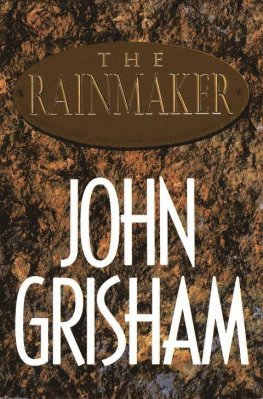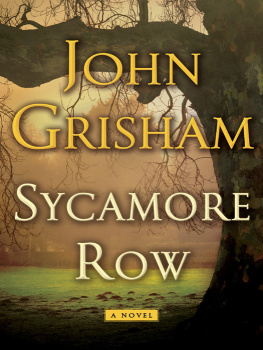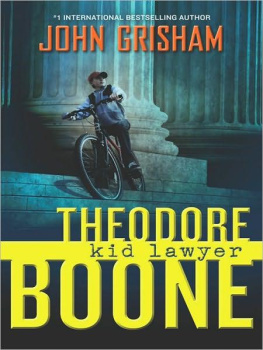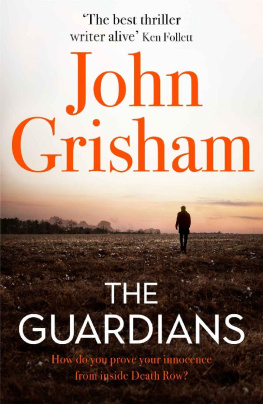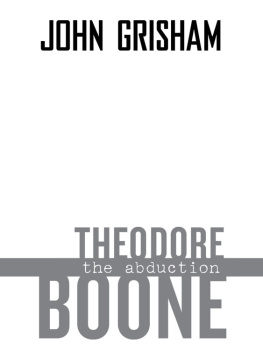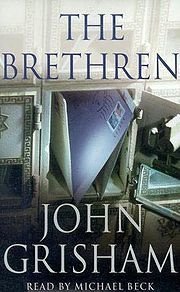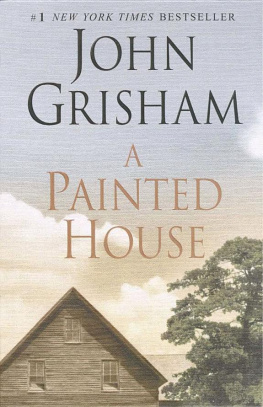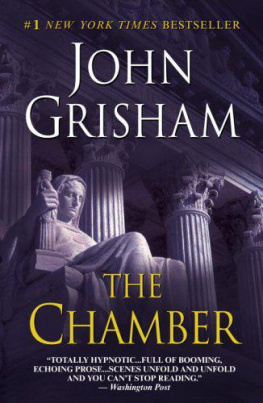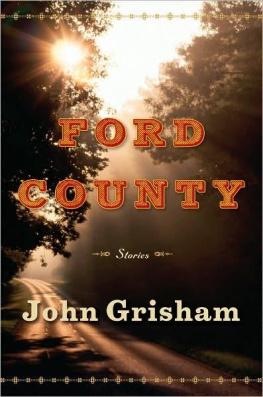John Grisham - Ford County: stories
Here you can read online John Grisham - Ford County: stories full text of the book (entire story) in english for free. Download pdf and epub, get meaning, cover and reviews about this ebook. year: 2009, publisher: Doubleday, genre: Detective and thriller. Description of the work, (preface) as well as reviews are available. Best literature library LitArk.com created for fans of good reading and offers a wide selection of genres:
Romance novel
Science fiction
Adventure
Detective
Science
History
Home and family
Prose
Art
Politics
Computer
Non-fiction
Religion
Business
Children
Humor
Choose a favorite category and find really read worthwhile books. Enjoy immersion in the world of imagination, feel the emotions of the characters or learn something new for yourself, make an fascinating discovery.

- Book:Ford County: stories
- Author:
- Publisher:Doubleday
- Genre:
- Year:2009
- Rating:4 / 5
- Favourites:Add to favourites
- Your mark:
- 80
- 1
- 2
- 3
- 4
- 5
Ford County: stories: summary, description and annotation
We offer to read an annotation, description, summary or preface (depends on what the author of the book "Ford County: stories" wrote himself). If you haven't found the necessary information about the book — write in the comments, we will try to find it.
Ford County: stories — read online for free the complete book (whole text) full work
Below is the text of the book, divided by pages. System saving the place of the last page read, allows you to conveniently read the book "Ford County: stories" online for free, without having to search again every time where you left off. Put a bookmark, and you can go to the page where you finished reading at any time.
Font size:
Interval:
Bookmark:
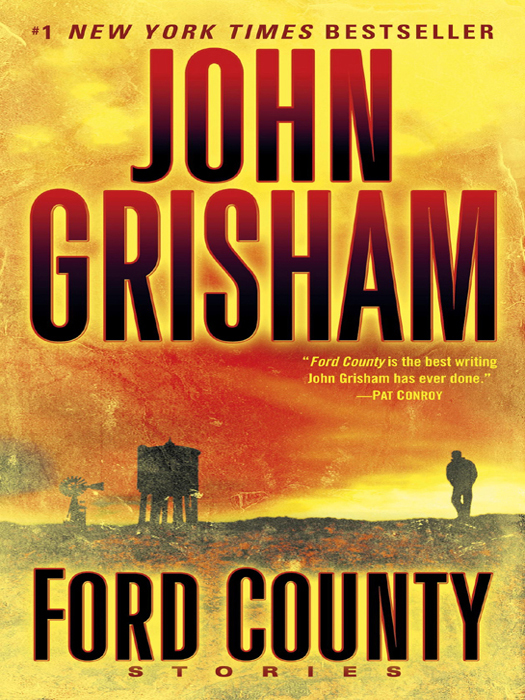
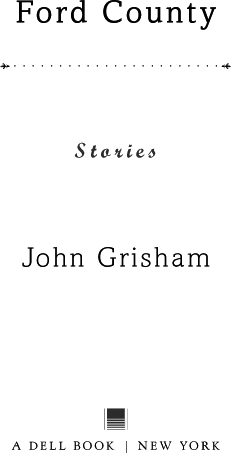
To Bobby Moak

When A Time to Kill was published twenty years ago, I soon learned the painful lesson that selling books was far more difficult than writing them. I bought a thousand copies and had trouble giving them away. I hauled them in the trunk of my car and peddled them at libraries, garden clubs, grocery stores, coffee shops, and a handful of bookstores. Often, I was assisted by my dear friend Bobby Moak.
There are stories we will never tell.


B y the time the news of Baileys accident spread through the rural settlement of Box Hill, there were several versions of how it happened. Someone from the construction company called his mother and reported that he had been injured when some scaffolding collapsed at a building site in downtown Memphis, that he was undergoing surgery, was stable, and was expected to survive. His mother, an invalid who weighed over four hundred pounds and was known to be excitable, missed some of the facts as she began to scream and carry on. She called friends and neighbors, and with each replaying of the tragic news various details were altered and enlarged. She neglected to write down the phone number of the person from the company, so there was no one to call to verify or discount the rumors that were multiplying by the minute.
One of Baileys co-workers, another boy from Ford County, called his girlfriend in Box Hill and gave an account that varied somewhat: Bailey had been run over by a bulldozer, which was next to the scaffolding, and he was practically dead. The surgeons were working on him, but things were grim.
Then an administrator from a hospital in Memphis called Baileys home, asked to speak to his mother, and was told that she was laid up in bed, too upset to talk, and unable to come to the phone. The neighbor who answered the phone pumped the administrator for details, but didnt get much. Something collapsed at a construction site, maybe a ditch in which the young man was working, or some such variation. Yes, he was in surgery, and the hospital needed basic information.
Baileys mothers small brick home quickly became a busy place. Visitors had begun arriving by late afternoon: friends, relatives, and several pastors from the tiny churches scattered around Box Hill. The women gathered in the kitchen and den and gossiped nonstop while the phone rang constantly. The men huddled outside and smoked cigarettes. Casseroles and cakes began to appear.
With little to do, and with scant information about Baileys injuries, the visitors seized upon every tiny fact, analyzed it, dissected it, then passed it along to the women inside, or to the men outside. A leg was mangled and would probably be amputated. There was a severe brain injury. Bailey fell four floors with the scaffolding, or maybe it was eight. His chest was crushed. A few of the facts and theories were simply created on the spot. There were even a few somber inquiries about funeral arrangements.
Bailey was nineteen years old and in his short life had never had so many friends and admirers. The entire community loved him more and more as the hours passed. He was a good boy, raised right, a much better person than his sorry father, a man no one had seen in years.
Baileys ex-girlfriend showed up and was soon the center of attention. She was distraught and overwhelmed and cried easily, especially when talking about her beloved Bailey. However, when word filtered back to the bedroom and his mother heard the little slut was in the house, she ordered her out. The little slut then hung around with the men outside, flirting and smoking. She finally left, vowing to drive to Memphis right then and see her Bailey.
A neighbors cousin lived in Memphis, and this cousin reluctantly agreed to go to the hospital and monitor things. His first call brought the news that the young man was indeed undergoing surgery for multiple injuries, but he appeared to be stable. Hed lost a lot of blood. In the second call, the cousin straightened out a few of the facts. Hed talked to the job foreman, and Bailey had been injured when a bulldozer struck the scaffolding, collapsing it and sending the poor boy crashing down fifteen feet into a pit of some sort. They were putting the brick on a six-story office building in Memphis, and Bailey was working as a masons helper. The hospital would not allow visitors for at least twenty-four hours, but blood donations were needed.
A masons helper? His mother had bragged that Bailey had been promoted rapidly through the company and was now an assistant job foreman. However, in the spirit of the moment, no one questioned her about this discrepancy.
After dark, a man in a suit appeared and explained that he was an investigator of some sort. He was passed along to an uncle, Baileys mothers youngest brother, and in a private conversation in the backyard he handed over a business card for a lawyer in Clanton. Best lawyer in the county, he said. And were already working on the case.
The uncle was impressed and promised to shun other lawyersjust a bunch of ambulance chasersand to curse any insurance adjuster who came slithering onto the scene.
Eventually, there was talk of a trip to Memphis. Though it was only two hours away by car, it may as well have been five. In Box Hill, going to the big city meant driving an hour to Tupelo, population fifty thousand. Memphis was in another state, another world, and, besides, crime was rampant. The murder rate was right up there with Detroit. They watched the carnage every night on Channel 5.
Baileys mother was growing more incapacitated by the moment and was clearly unable to travel, let alone give blood. His sister lived in Clanton, but she could not leave her children. Tomorrow was Friday, a workday, and there was a general belief that such a trip to Memphis and back, plus the blood thing, would take many hours and, well, who knew when the donors might get back to Ford County.
Another call from Memphis brought the news that the boy was out of surgery, clinging to life, and still in desperate need of blood. By the time this reached the group of men loitering out in the driveway, it sounded as though poor Bailey might die any minute unless his loved ones hustled to the hospital and opened their veins.
A hero quickly emerged. His name was Wayne Agnor, an alleged close friend of Baileys who since birth had been known as Aggie. He ran a body shop with his father, and thus had hours flexible enough for a quick trip to Memphis. He also had his own pickup, a late-model Dodge, and he claimed to know Memphis like the back of his hand.
I can leave right now, Aggie said proudly to the group, and word spread through the house that a trip was materializing. One of the women calmed things down when she explained that several volunteers were needed since the hospital would extract only one pint from each donor. You cant give a gallon, she explained. Very few had actually given blood, and the thought of needles and tubes frightened many. The house and front yard became very quiet. Concerned neighbors who had been so close to Bailey just moments earlier began looking for distance.
Font size:
Interval:
Bookmark:
Similar books «Ford County: stories»
Look at similar books to Ford County: stories. We have selected literature similar in name and meaning in the hope of providing readers with more options to find new, interesting, not yet read works.
Discussion, reviews of the book Ford County: stories and just readers' own opinions. Leave your comments, write what you think about the work, its meaning or the main characters. Specify what exactly you liked and what you didn't like, and why you think so.

